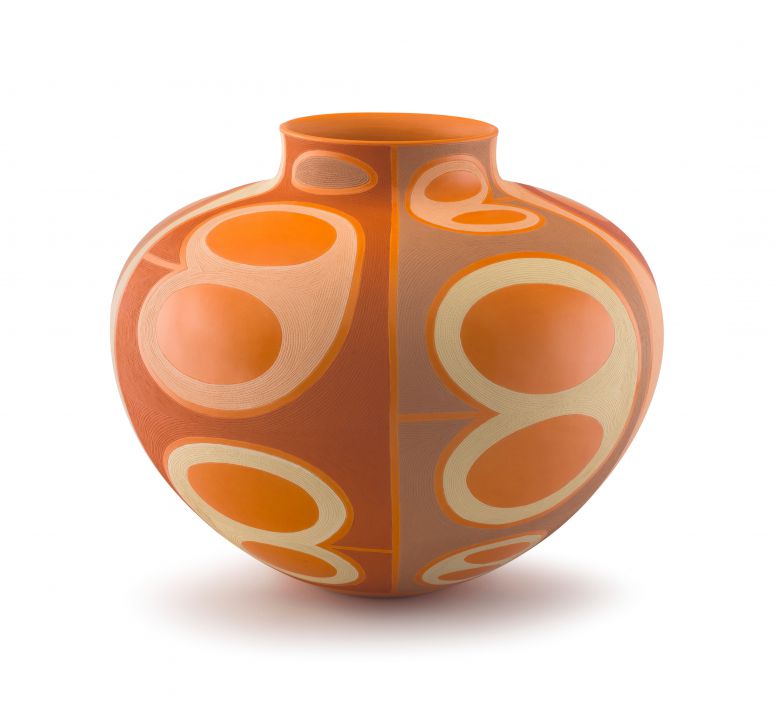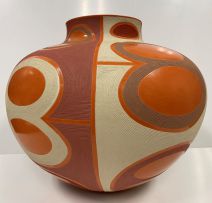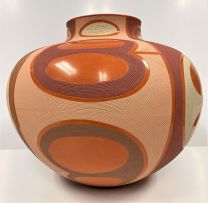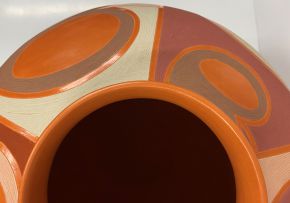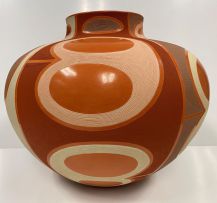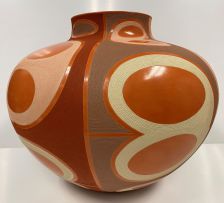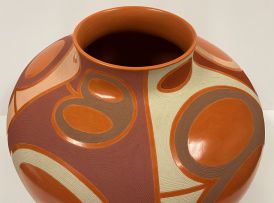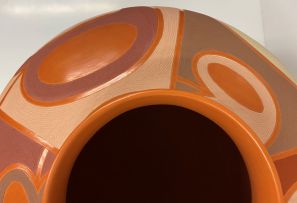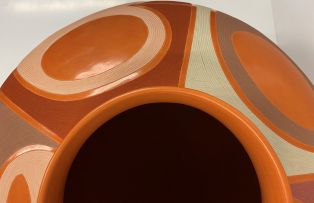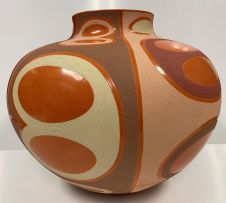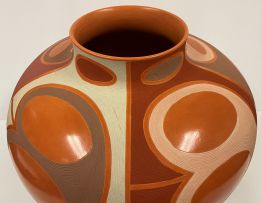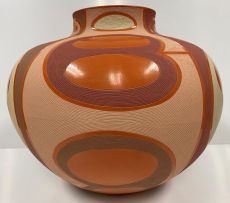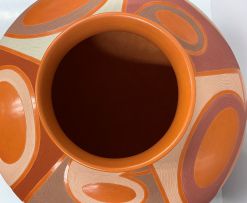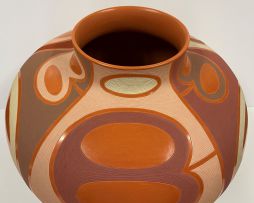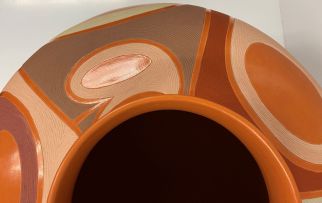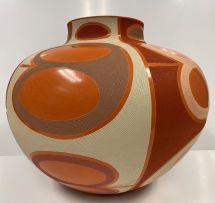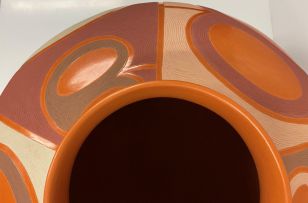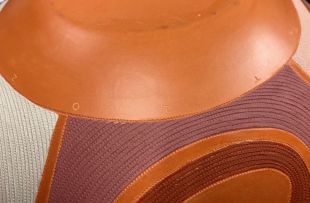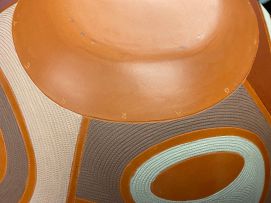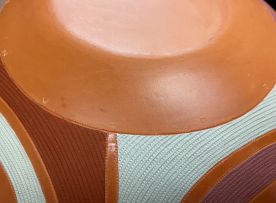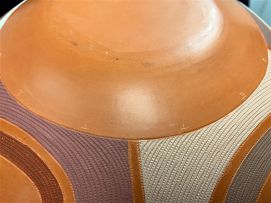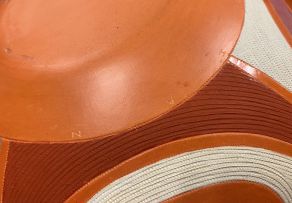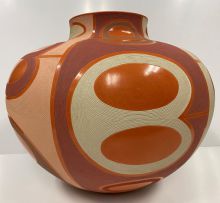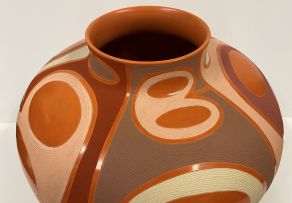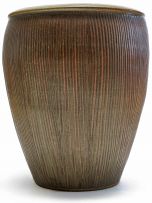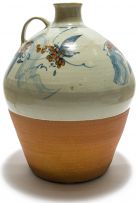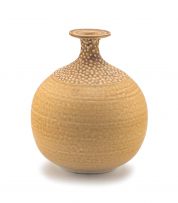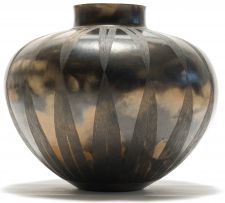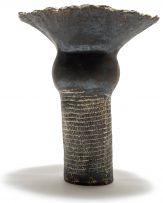Modern, Post-War and Contemporary Art, Decorative Arts, Jewellery and Fine Wine
Live Virtual Auction, 8 - 11 November 2020
South African Ceramics, Selected Prints and Multiples
Incl. Buyer's Premium & VAT
About this Item
signed and dated 2020 carved on the base
Notes
'A pot is elevated to the realm of art if the potter makes it primarily for that reason, and it will then be judged as art, and not as a well-designed household utensil.'1 'What's brilliant about ceramics is the range of techniques and the enormously rich history which [can be drawn on] for inspiration - you have everything that a painter has but also most of the stuff a sculptor has and all those very particular techniques and effects that you can only get with ceramics.'2
Contemporary South African ceramics emerged in the 1960s and 70s, distinguishing itself as a separate category from what is known as historical ceramics (such as VOC plates and other wares traded between East and West), and heritage vessels (such as the many ceramic pots found at archaeological sites, including at Mapungubwe). In addition to work from the studios of individual artists known primarily as ceramists, such as Esias Bosch and Andrew Walford, it also includes the work of artists known primarily as painters, sculptors or printmakers, such as Deborah Bell, Robert Hodgins and Hannatjie van der Wat, among many others, who produce ceramics occasionally or regularly, as part of their overall art practice. The category also encompasses the production of commercial ware from smaller artisanal potteries and studios such as Cullinan Refractories/Olifantsfontein Potteries (which produced Linnware) and Grahamstown Pottery (which produced Drostdy Ware), as well more mass-produced, designer utilitarian ware, such as that manufactured by Continental China and National Ceramic Industries in the 1960s. A contemporary take on this form of production is the William Kentridge mirrored coffee cups produced by Illy in 2008.
The work of artists working in contemporary ceramic media ranges from new interpretations of traditional forms (for example in the work of Nesta Nala, Ian Garrett and Juliet Armstrong), and the reinvention of classical forms and shapes in highly innovative sculptural ceramic pieces (such as by Corné Joubert, Ruan Hoffmann and Molelekoa Simon Masilo).
1. Frieda Harmsen (1985) Looking at South African Art: A guide to the study and appreciation of art, Pretoria: Van Schaik, page 145.
2. Robin Cawdron-Stewart (2017) 'Grayson Perry: An Artist Who Happens to Make Ceramics' , www.sothebys.com.
